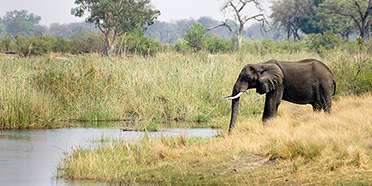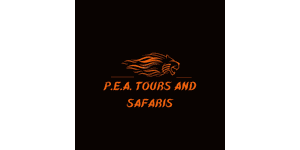
Safari Tours to Nkasa Rupara NP
-
![17-Day Northern Namibia & Botswana Combination]()
17-Day Northern Namibia & Botswana Combination
$4,080 to $4,372 pp (USD)
Botswana, Namibia & Zimbabwe: Self-drive
Mid-range Lodge & Tented CampYou Visit: Windhoek (Start), Okonjima NR, Onguma GR, Etosha NP, Rundu (City), Nkasa Rupara NP (Zambezi Region), Chobe NP, Kasane (Town), Nata (Town), Maun (City), Moremi GR (Okavango Delta), Ghanzi (Town), Windhoek (End)

Great Explorations Namibia
4.9/5 – 77 Reviews
-
![11-Day Wildlife Highlights Tour]()
11-Day Wildlife Highlights Tour
$8,580 pp (USD)
Namibia & Zimbabwe: Private tour
Mid-range LodgeYou Visit: Windhoek (Start), Okapuka Ranch, Eastern Etosha NP, Mahango GR (Zambezi Region), Mudumu NP (Zambezi Region), Nkasa Rupara NP (Zambezi Region), Victoria Falls, Victoria Falls Airport (End)

PEA Tours and Safaris
5.0/5 – 15 Reviews
-
![10-Day Ultimate Namibian Northeast Adventure]()
10-Day Ultimate Namibian Northeast Adventure
$6,160 pp (USD)
Namibia & Zimbabwe: Shared tour (max 3 people per vehicle)
Mid-range Camping & LodgeYou Visit: Windhoek (Start), Waterberg Plateau, Khaudum NP, Mahango GR (Zambezi Region), Bwabwata NP (Zambezi Region), Nkasa Rupara NP (Zambezi Region), Victoria Falls (End)

PEA Tours and Safaris
5.0/5 – 15 Reviews

 Namibia Parks
Namibia Parks








